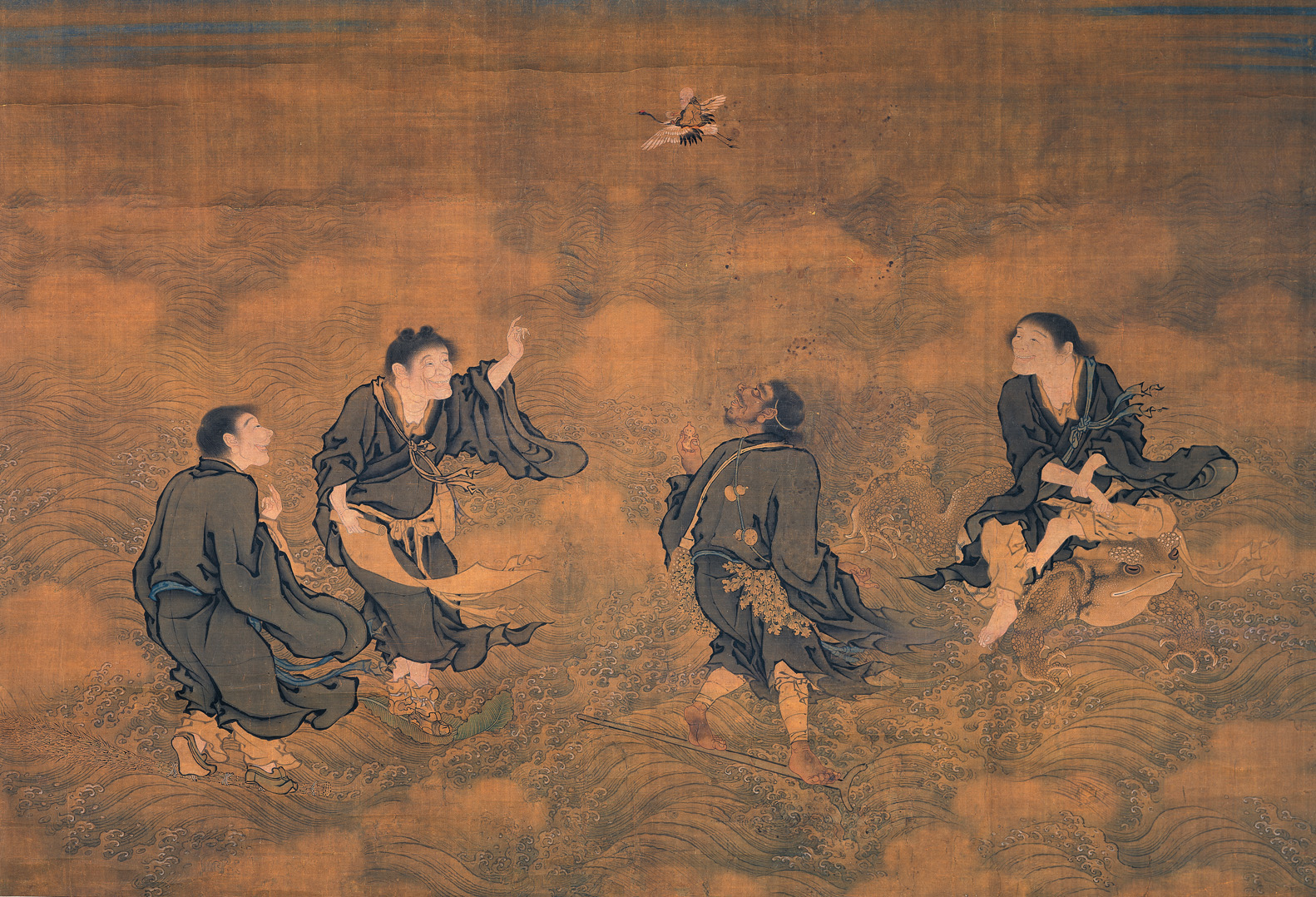MOH has been extremely sick for the past couple days (and counting) and has been putting the whole "in sickness and health" vow to good use. Aside from walking around like a zombie, coughing sporadically, and taking in tons of tea/soup, he's been moping around requesting that even if he dies, I stay unmarried.
MOH's constant death remarks got me to thinking about a question that we normally don't think about until we get much older... What determines our mortality? Is there a such thing as an elixir of life that can keep us our youthful selves, free of disease, free of aging?
 |
| Immortality in art: "Four immortals saluting longevity" by Shang Xi |
While life expectancy has gradually increased with the advent of technology and better health care, our life span has remained pretty constant (the maximum life span is currently ~120 years old). While this life span is quite long, other animals, even mammals, have been known to live longer. For instance, a large whale called the bowhead whale can live up to 200 years. In addition to a long lifespan, this whale species also has low prevalence of many diseases associated with aging.
 |
| Bowhead whales can reach up to 20 meters in length and weigh up to 100 tons (photo courtesy of Olga Shpak) |
Why so old and healthy? And is it possible that with today's technological advances, can we tap into some of those genes and maybe get clues as to why we don't live as long?
In a recent article published in Cell Reports, scientists have uncovered the genetic makeup behind why long-living mammals like the bowhead whales are able to live so long, disease free.
Scientists were able to map the genetic map (or genome) of this whale species and compared the bowhead gene map to another whale species that does not live as long (Minke whale which lives for about 50 years) and identified several genes that may be the reason for why these whales live so long.
Not surprisingly, many age, cancer, pro-growth, and DNA repair genes were found in the bowhead whale. Some interesting genes that turned up were the gene called histone deacetylase 1 (HDAC), a gene that is important for packaging DNA, and excision repair cross-complementing rodent repair deficiency (ERCC1), which when mutated, affects the lifespan of rodents and accelerates the aging process.
It's an experiment taken right out of what seems like a mad scientist's brain, but how do you apply these genetic findings to humans? Finding natural ways that animals are able to live so long, disease free, offers us new ways to study how these same genes may be changed in humans. If we could understand how these genes work naturally (to ward off age-related disease), we can potentially figure out how to fight these same genes when they get funky and altered. Though it's a long stretch to believe that we can take a cocktail of assorted genes that are "anti-aging/anti-disease," it's definitely a possibility in the future (realistic or not, it's possible!).
Hope everyone's enjoying their weekend. In between caring for MOH, I've been making peanut butter energy bars that when frozen taste like frozen yogurt.... so good.
Until next time, happy eating all!
References:
Keane, M et al., 2015. Insights into the evolution of longevity from the bowhead whale genome. Cell Reports. 10: 112-122.
No comments:
Post a Comment